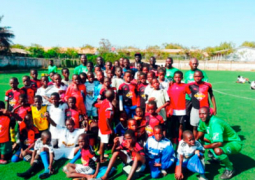Key findings emerging from a report by the Economic Commission for Africa (ECA) entitled: Status of Gender Inequality in Social and Economic, and Political Sectors: "Implications for the implementation and monitoring of relevant international and regional commitments and social protection" were presented at the 7th Session of the Committee on Women and Development.
"Despite the commitments and declarations towards gender equality, the progress made on the ground still has some way to go," said Omar Abdourahman of the ECA’s African Centre for Gender and Social Development (ACGSD).
Abdourahman told participants that the report is an assessment based on the follow up to the fifteen year review of the Beijing Platform for Action, undertaken in 2009, which indicated some achievements such as policy, legal and institutional reforms in many countries.
"These advances in policies and legislations at the macro-level have not necessarily resulted in progress in gender equality and women's empowerment on the ground," he said.
The report shows that women still have unequal access to social opportunities such as education, health care, water and sanitation; and in economic opportunities such as employment, and productive resources.
The objective of the report, according to Abdourahman was to empirically identify the status of gender inequality in the social, economic and political sectors in 8 selected countries (Algeria, Cameroon, Ethiopia, Ghana, Mali, Mauritania Uganda and Zambia).
The study aims provides an overview of the state of social protection mechanisms in Africa. It also outlines the progress that has been made to address these inequalities as well as the implications and recommendations for monitoring the gender equality instruments. This week, discussions will also look at how best to assist the member States in implementing and monitoring their commitments to address gender inequality.


